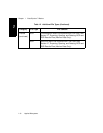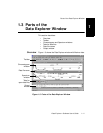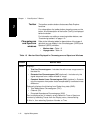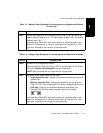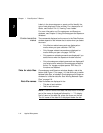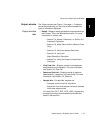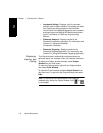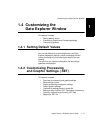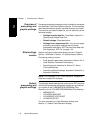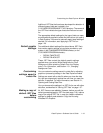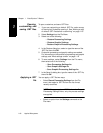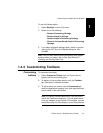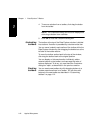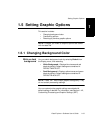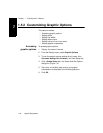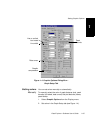
Chapter 1 Data Explorer™ Basics
1-18 Applied Biosystems
1
Overview of
processing and
graphic settings
Processing and graphic settings control how data is processed
and displayed in the Data Explorer software. The last settings
used are automatically saved in the data file when you close it.
The next time you open the data file, you can select any of the
following to apply:
• Settings from the data file—Described in Section 2.1,
Opening and Closing Data Files.
• Default settings—Described below.
• Settings from a selected set file—You can also apply
processing and graphic settings that have been
exported as stand-alone .SET files from other data files.
See “Applying a .SET file” on page 1-20.
What settings
contain
Graphic settings include the attributes you set in Graphic
Options, described in Section 1.5, Setting Graphic Options.
Processing settings include:
• Peak detection parameters, described in Section 3.2.4,
Peak Detection Parameter Descriptions
• Smoothing points, described in Section 5.7, Noise
Filtering/Smoothing
• Automatic calibration settings, described in Section 5.4,
Automatic Calibration
NOTE: You can open a .SET file in Microsoft Notepad to
view the complete file contents.
Default
processing and
graphic settings
The following default settings files (stand-alone .SET files) that
contain both processing and graphic settings are provided on
your system in the C:\MARINER\PROGRAM\Set Files
directory or the C:\VOYAGER\PROGRAM\Set Files directory:
• MARINER.SET
• VOYAGERLINEAR.SET
• VOYAGERREFLECTOR.SET
• VOYAGERPSD.SET
For more information on Peak Detection settings, see
Section 3.7, Default Peak Detection Settings.



